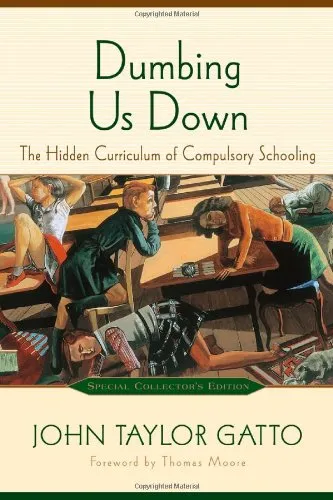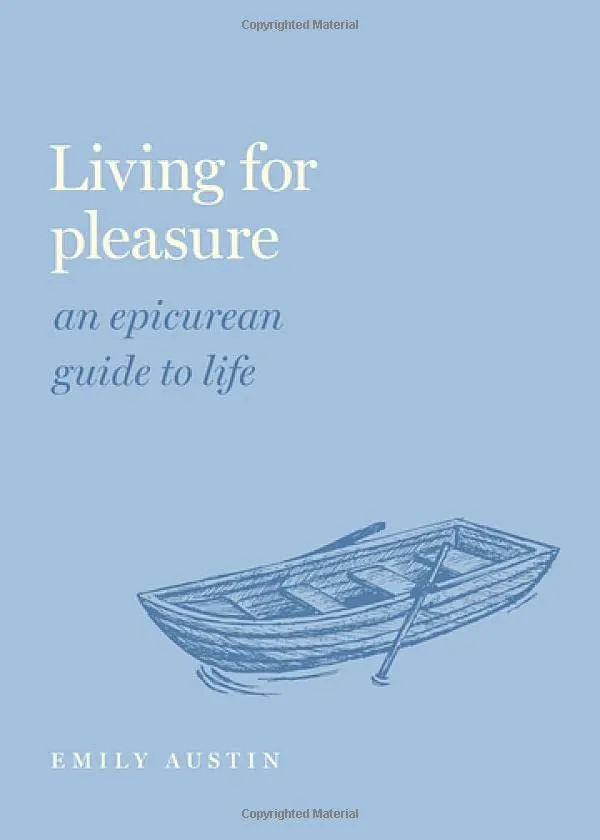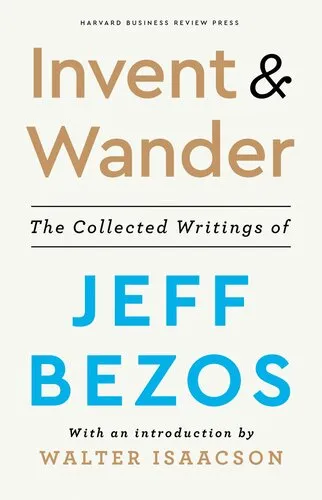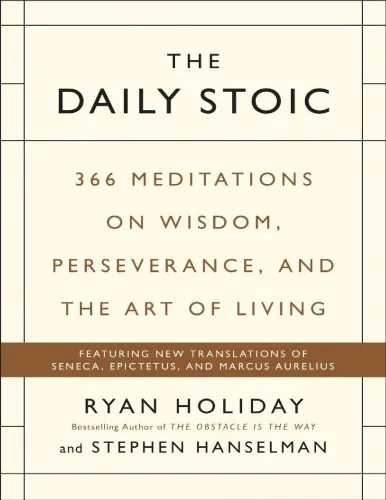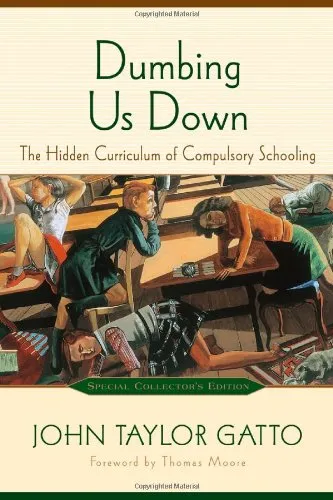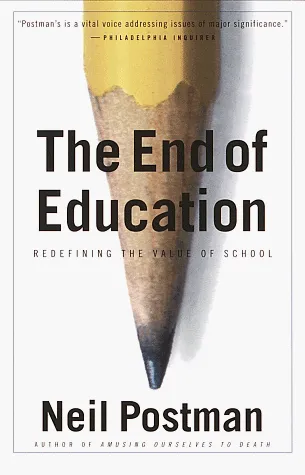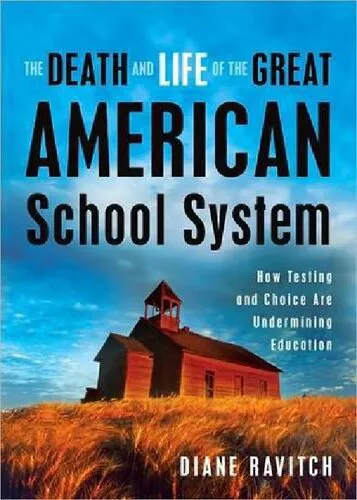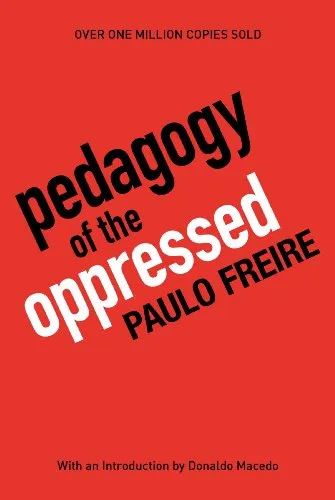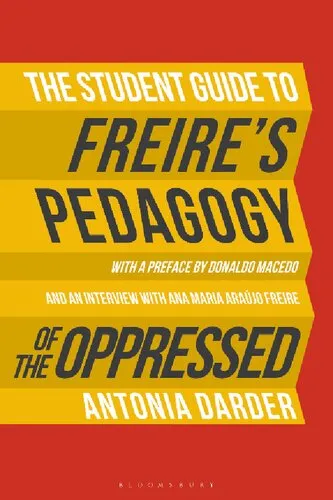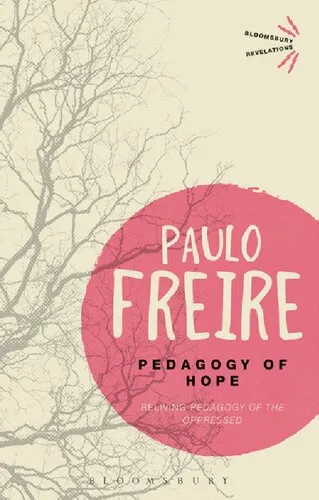Dumbing Us Down: The Hidden Curriculum of Compulsory Schooling
4.2
Reviews from our users

You Can Ask your questions from this book's AI after Login
Each download or ask from book AI costs 2 points. To earn more free points, please visit the Points Guide Page and complete some valuable actions.Related Refrences:
Analytical Summary
“Dumbing Us Down: The Hidden Curriculum of Compulsory Schooling” is an incisive exploration of the structural flaws embedded in contemporary public education systems. Written by veteran educator John Taylor Gatto, this work pulls back the curtain on what schools really teach—beyond the official curriculum—and reveals a set of deeply ingrained messages that often hinder, rather than help, intellectual and personal growth.
The book consolidates Gatto’s decades of experience in classrooms across New York City, distilling his observations into a compelling critique of compulsory schooling’s unintended consequences. He argues that what children truly learn is not merely reading, writing, and arithmetic, but conformity, dependency, and a narrowing of curiosity. This “hidden curriculum” is rarely articulated in official documents, yet permeates the daily rhythms, hierarchies, and implicit messaging of the educational system.
Rather than focusing solely on test scores or policy debates, Gatto directs attention to the lived experience of students and the cultural assumptions underpinning their instruction. He sketches a portrait of schooling as an institution that often suppresses individuality, stifles community connections, and erodes the capacity for self-directed learning — themes that resonate deeply with educators, parents, and policymakers alike.
Key Takeaways
This work delivers several enduring lessons for anyone invested in the future of education, civic responsibility, and human potential.
First, compulsory schooling as it is widely practiced tends to produce predictable, uniform outcomes that serve bureaucratic needs more than the flourishing of the individual.
Second, the hidden curriculum—those non-explicit lessons students absorb—can undermine creativity and self-reliance by placing excessive emphasis on compliance and external validation.
Third, genuine education is an inherently personal and community-oriented process, requiring flexibility, mentorship, and real-world engagement outside rigid institutional structures.
Finally, meaningful reform must address not only what is taught, but also how and why schooling operates as it does — an area where Gatto’s perspective remains both relevant and challenging.
Memorable Quotes
“The school system is designed to produce a manageable populace, not independent thinkers.” Unknown
“We must abandon the idea that schooling and education are synonymous.” Unknown
“Bureaucracies fear individuality because it resists standardization.” Unknown
Why This Book Matters
In an era dominated by standardized testing, centralized curricula, and industrial models of schooling, “Dumbing Us Down: The Hidden Curriculum of Compulsory Schooling” is a clarion call for reflection and change.
Its insights speak directly to anyone concerned about the long-term cultural and civic implications of our educational systems. By dissecting the hidden lessons embedded in these systems, the book invites stakeholders to critically evaluate the real purpose of schooling and to imagine alternatives that prioritize autonomy, diversity, and resilience over mere conformity.
While some details about its publication history may be unclear—information unavailable where no reliable public source exists—the underlying issues it addresses remain urgent and unresolved in many communities worldwide.
Inspiring Conclusion
“Dumbing Us Down: The Hidden Curriculum of Compulsory Schooling” continues to provoke thought and dialogue decades after its initial release.
Its enduring relevance lies in its ability to challenge accepted norms, urging critical examination of what our schools truly accomplish. By bringing awareness to the implicit messages within compulsory education, the book offers readers a valuable framework to envision and implement meaningful changes in their communities.
For academics, educators, and engaged citizens, the next step is clear: read the book, share its insights, and engage in active discussions about how to transform both the spirit and the practice of education for a more liberated, creative, and human-centered future.
Free Direct Download
You Can Download this book after Login
Accessing books through legal platforms and public libraries not only supports the rights of authors and publishers but also contributes to the sustainability of reading culture. Before downloading, please take a moment to consider these options.
Find this book on other platforms:
WorldCat helps you find books in libraries worldwide.
See ratings, reviews, and discussions on Goodreads.
Find and buy rare or used books on AbeBooks.
1292
بازدید4.2
امتیاز0
نظر98%
رضایتReviews:
4.2
Based on 0 users review
Questions & Answers
Ask questions about this book or help others by answering
No questions yet. Be the first to ask!
